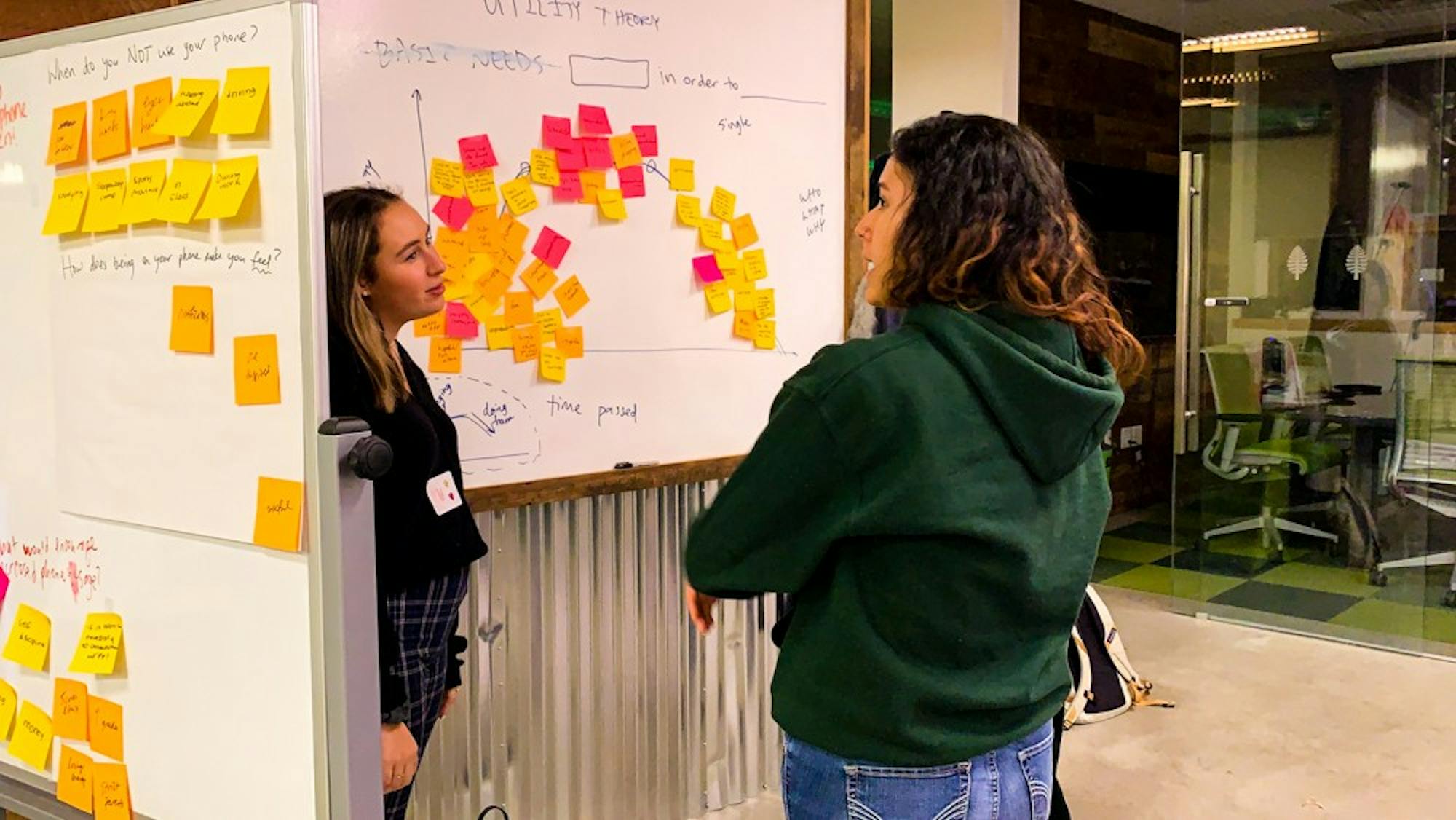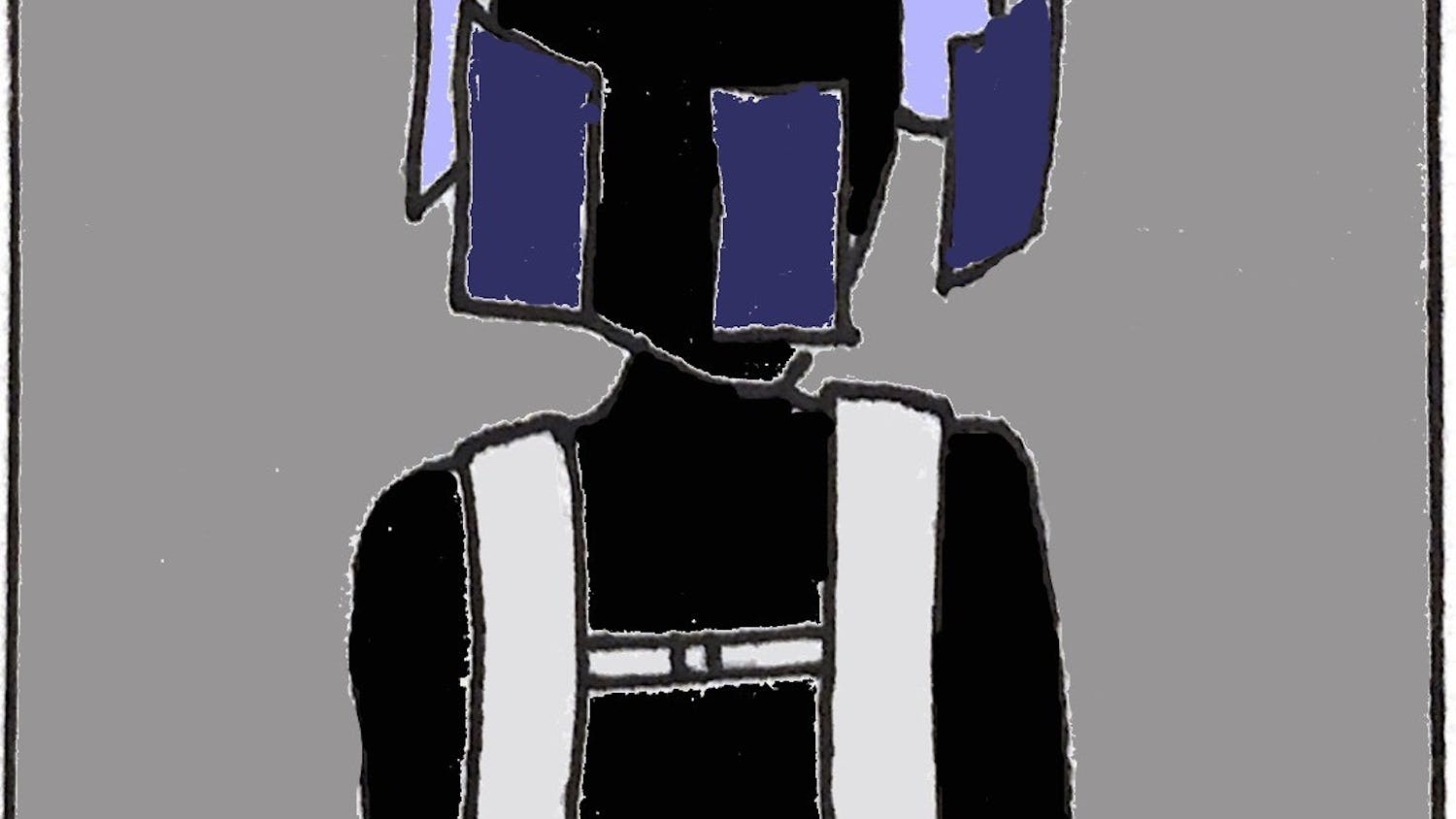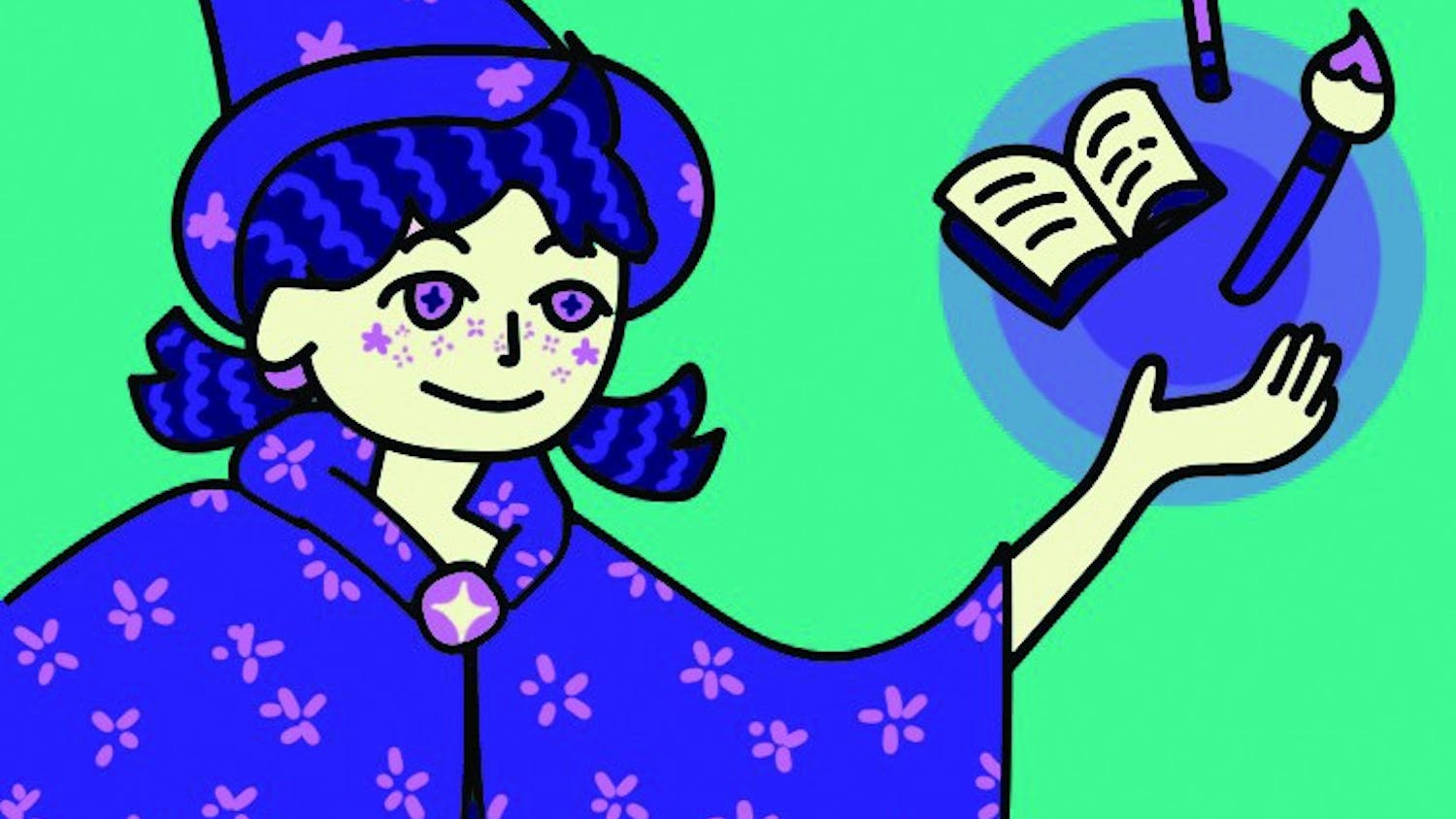The first-ever Dartmouth Designathon was held at the Magnuson Center for Entrepreneurship on Jan. 31 and Feb. 1. Four student teams participated in the “Unplugged” design challenge, in which they were asked to design solutions to address the issue of screen dependence and promote tech-life balance. The event was cosponsored by the Dartmouth Design Collective, the nonprofit organization LookUp.Live and the Magnuson Center. The winning team won a $5,000 cash grant to further develop their project.
While similar to HackDartmouth — a yearly Hackathon event on campus that has happened for the last five years — the Designathon marked the first time the College hosted a competition focused on human-centered design. According to Dartmouth Design Collective president and Designathon organizer Anca Balaceanu ’20, the goal was to “keep the model of a fast-paced, creative environment, but with a focus on the human-centered design process.”
“The Designathon allows people who may not be as technical [as participants in Hackathon] to have a clear place to work on some sprint, intensive activity — and to see their ideas come to life,” said DALI Lab director and computer science professor Lorie Loeb, who served as one of the Designathon judges.
The Designathon focused on the issue of digital addiction and its impact on youth mental health, which is “an emerging global epidemic,” that has been linked by some to the “escalating mental health crisis” among youths, according to the Dartmouth Designathon website.
Balaceanu said the theme was inspired by Lookup.Live’s cofounder Susan Reynolds ’85, who Balaceanu said seeks to empower youth to find a balance between technology use and real lives. According to Reynolds, the goal of the organization is to shift social norms away from people being on their phone toward encouraging real-life engagement.
“My mission would be that you walk into Foco and nobody would be on their phone,” Reynolds said. “Just like there used to be people smoking in restaurants, but now you would never see that.”
From 5 p.m. to 9 p.m. on Friday evening, experienced designers helped the teams understand the event prompt and unpack the user research they conducted before coming to the event. On Saturday, the teams focused on the ideation process — where they built prototypes, conducted user testing and presented their projects. That evening, the winning team was chosen on the spot by the judging committee.
Team “Zzz,” consisting of Maxine Perroni-Scharf ’21, Chloe Son ’21, Winston Wang ’21 and Timothy Yang ’21, won first place and the grant with their idea of a phone app named “Sleeping Pet.” The app proposal includes a customizable night sleep routine, as well as the physical features of a virtual sleeping pet, which gets sleepy and prompts the user to sleep if the user continues to use the phone after their set bedtime.
“When you personalize the avatar, you have a personal investment and attachment to it, so if you see it really wanting to sleep, and your actions are inhibiting it from sleeping, then maybe that would push people more towards getting themselves to bed,” Son said.
The team is planning on continuing their project next term, and using the grant on development and advertising.
“We are planning on using a lot of the grant on optimization of the product so that we could make it into something really relevant to the students here at Dartmouth or beyond Dartmouth’s campus,” Son said.
In addition to the cash grant, the winning team will be funded with an all-expenses-paid trip to the LookUp.Live Collaborative Summit this April in San Francisco, and will be provided with both a mentor outside of Dartmouth and the opportunity to join the LookUp.Live’s collaborative learning lab. The runner-up team, “RG Box,” won a full-year Adobe Creative Cloud subscription. “RG Box” proposed a box with a green and red side to indicate whether the user is open for conversation while in a public space such as a restaurant, according to Balaceanu.
The other two Designathon teams also proposed solutions to address phone overuse. Balaceanu said that one team designed a box that locks users’ phones and provides conversation prompts to promote genuine, face-to-face conversations between people. The other team proposed an awareness campaign to warn people of the harmful effects of excessive technology use using stickers and memes.
“It can yield very diverse solutions to approach the same problem,” Balaceanu said.
For Balaceanu, organizing the Designathon was both a rewarding and challenging experience. As a teaching assistant in ENGS 12, “Design Thinking,” Balaceanu said she enjoyed helping designers to develop their projects.
“I really enjoy facilitation and helping people understand how design works,” Balaceanu said. “[But] the challenging part of an event that lasts for so long is how I keep my own energy level high while giving to the community and helping them achieve a state of creative flow.”
In order to stimulate the teams’ creative output, the Designathon organizing committee provided meals for participants and planned different energizer games to keep people engaged.
“One thing that the Designathon taught me is that it is really possible to do work while having fun,” Son said. “The normal assumption for college students is that if you are doing work, it’s normally not as much fun. But because we were having fun, we were able to have some fresh, interesting ideas.”
According to Balaceanu, the second Designathon will be hosted on April 25 in conjunction with Boston Consulting Group Digital Ventures.




